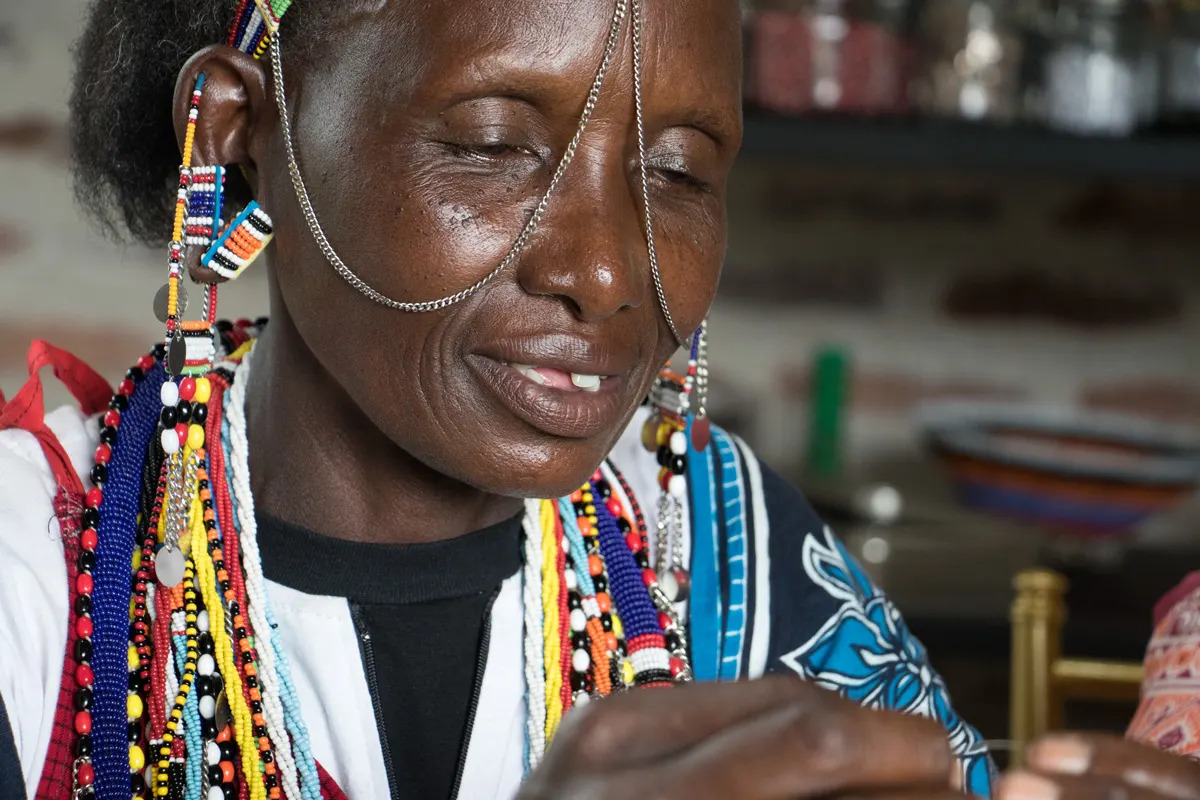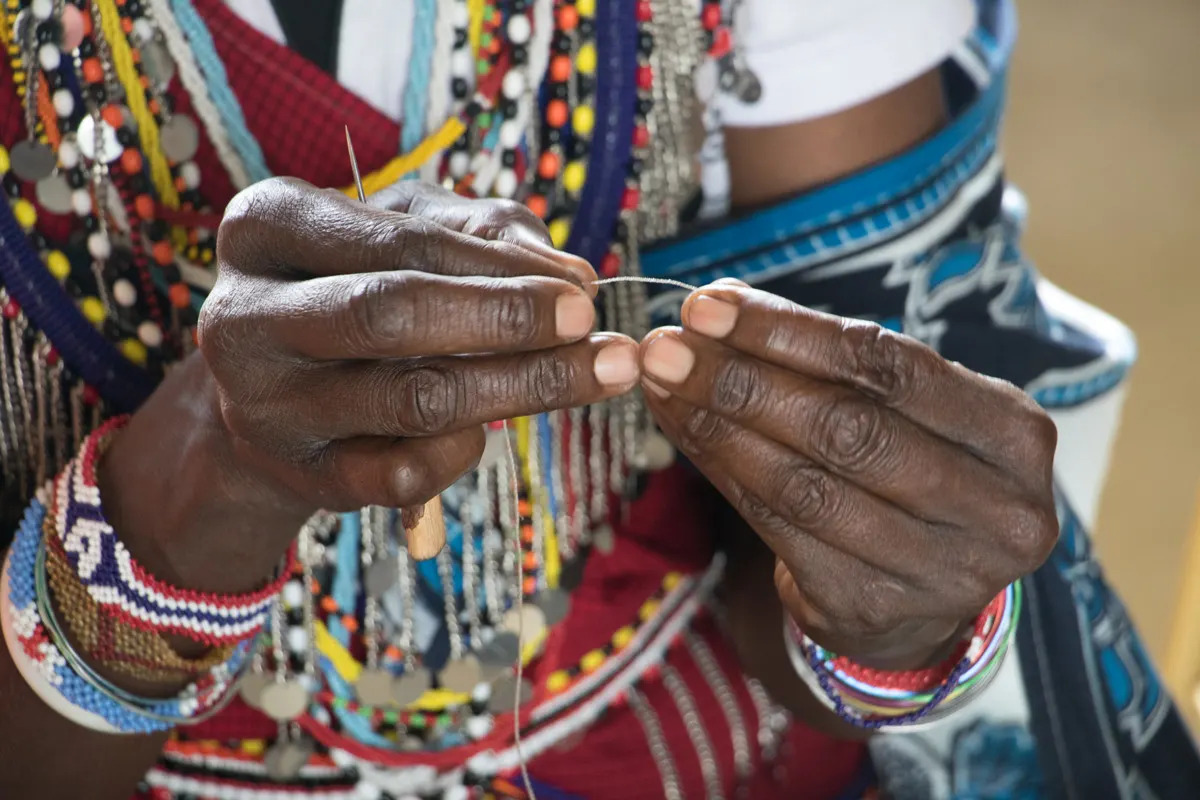Getting to know Elizabeth Kaiyoni
28 June 2016 | Inside Angama | Emma Gregg

To some, this is sacrilege, so I’m going to whisper it. There are times, on safari, when it’s tempting to give the morning drive a miss. Don’t worry. Nobody’s judging you. At Angama Mara, your time is your own. Instead of wrenching yourself out of bed at the crack of dawn, how about this for a plan? Start the day gently. Have a leisurely breakfast on the deck. Then meander into the craft studio to meet Angama Mara’s friendly Maasai craftworkers. You could have a go at beading, or simply sit down for a chat.
I asked one of the team, Elizabeth Kaiyoni, about her background and traditions. Here’s what she said.
How many siblings do you have, and do you have a favourite?
We are five in our family. My brother and I have a deep connection because we breastfed at the same time.
How did you learn your craft?
My grandmother taught me how to work with beads when I was a girl. Selling the things I made was my way of contributing to the family.
What’s the significance of the beads worn by Maasai women?
We have necklaces for specific events like weddings or meetings with the elders. This is something that is passed from one generation to another. I make my necklaces myself. When I wear them, I feel in touch with tradition.

Why are Maasai traditions important to you?
They teach our children how to become good elders. They know how to keep peace within themselves. Also, tourists find them interesting – many people want to dress and dance like the Maasai! The more we present and explain our culture to tourists, the more our community benefits. We now have schools, hospitals and an outlet for our products.
Are you proud to be Maasai?
Yes, because we’ve kept our culture intact. We have a lot of cows and that’s our wealth. We live in manyattas – groups of small houses. They unite us – it’s a cheap and resourceful way to live.
What does it mean to you to be African?
My skin doesn’t change even if I walk under a hot sun. If I’m pricked by a thorn, I remove it and apply herbs and it heals very fast. I am African, therefore I am tough.
What makes you happiest?
I am old but I’m happy because I’m in my home country, I’m healthy and I’m at peace.
TAGGED WITH: Maasai Culture, Maasai Tradition, Maasai Beadwork, Angama Beading Studio


